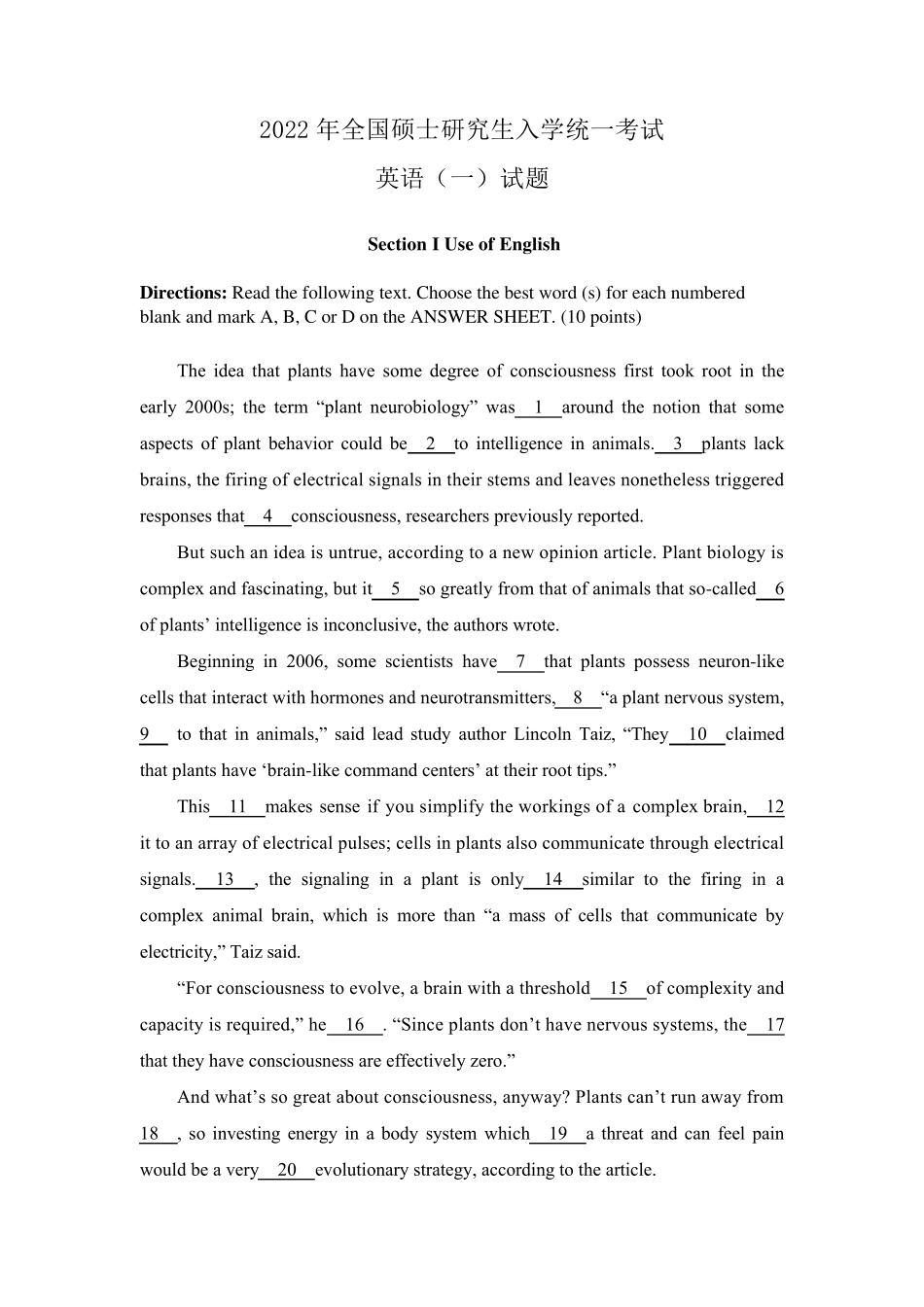2022 年全国硕士研究生入学统一考试 英语(一)试题 Section I Use of English Directions: Read the following text. Choose the best word (s) for each numbered blank and mark A, B, C or D on the ANSWER SHEET. (10 points) The idea that plants have some degree of consciousness first took root in the early 2000s; the term “plant neurobiology” was 1 around the notion that some aspects of plant behavior could be 2 to intelligence in animals. 3 plants lack brains, the firing of electrical signals in their stems and leaves nonetheless triggered responses that 4 consciousness, researchers previously reported. But such an idea is untrue, according to a new opinion article. Plant biology is complex and fascinating, but it 5 so greatly from that of animals that so-called 6 of plants’ intelligence is inconclusive, the authors wrote. Beginning in 2006, some scientists have 7 that plants possess neuron-like cells that interact with hormones and neurotransmitters, 8 “a plant nervous system, 9 to that in animals,” said lead study author Lincoln Taiz, “They 10 claimed that plants have ‘brain-like command centers’ at their root tips.” This 11 makes sense if you simplify the workings of a complex brain, 12 it to an array of electrical pulses; cells in plants also communicate through electrical signals. 13 , the signaling in a plant is only 14 similar to the firing in a complex animal brain, which is more than “a mass of cells that communicate by electricity,” Taiz said. “For consciousness to evolve, a brain with a threshold 15 of complexity and capacity is required,” he 16 . “Since plants don’t have nervous systems, the 17 that they have consciousness are effectively zero.” And what’s so great a...


